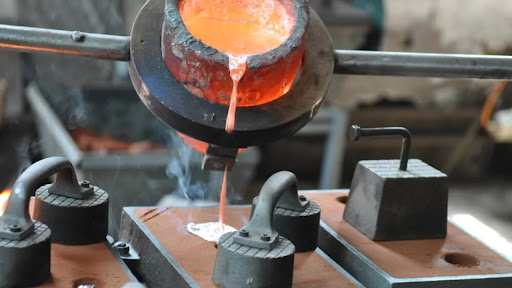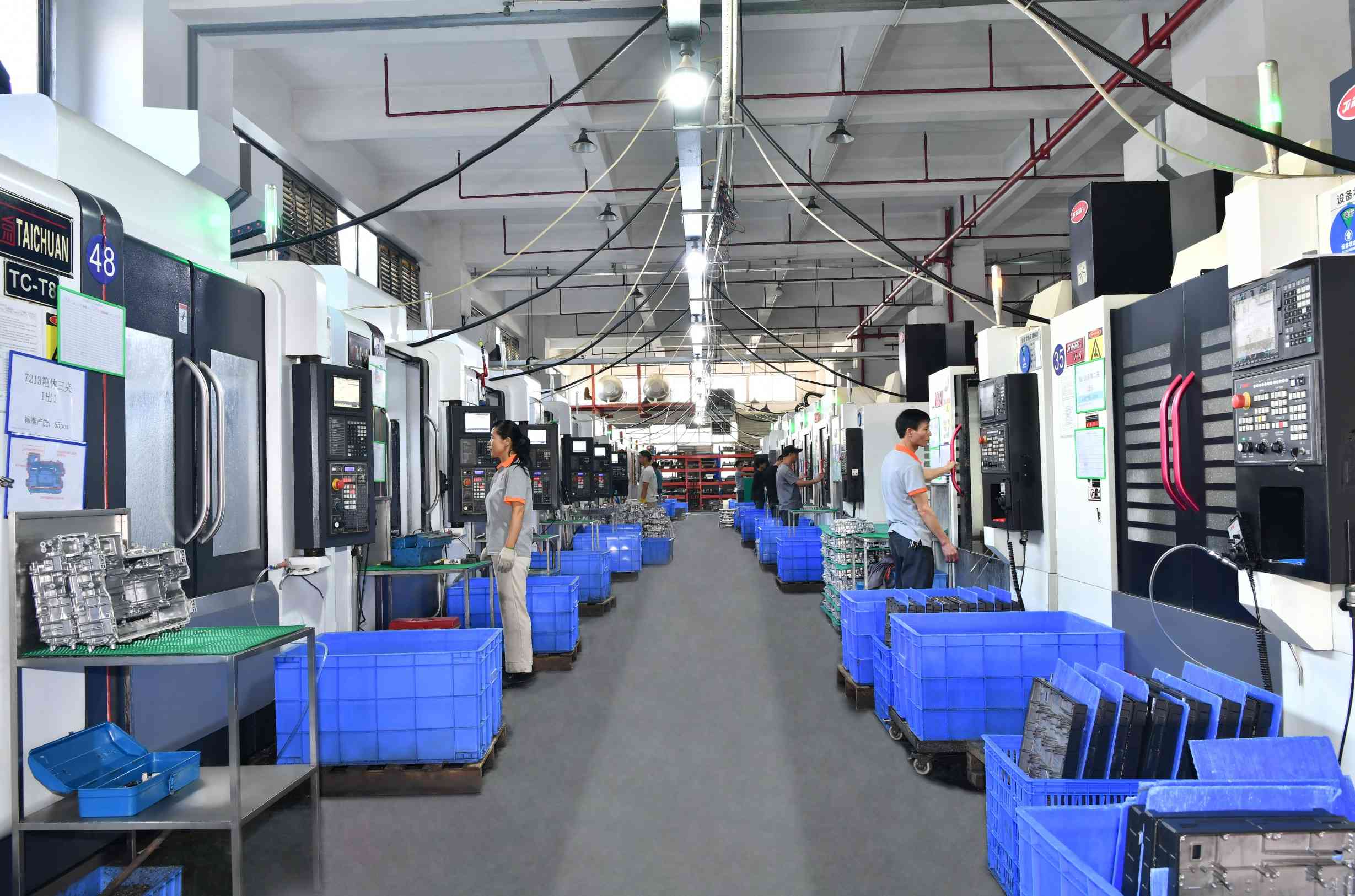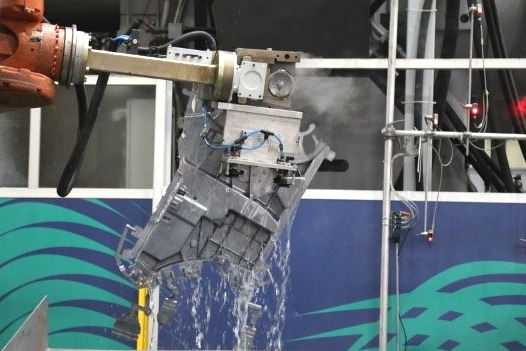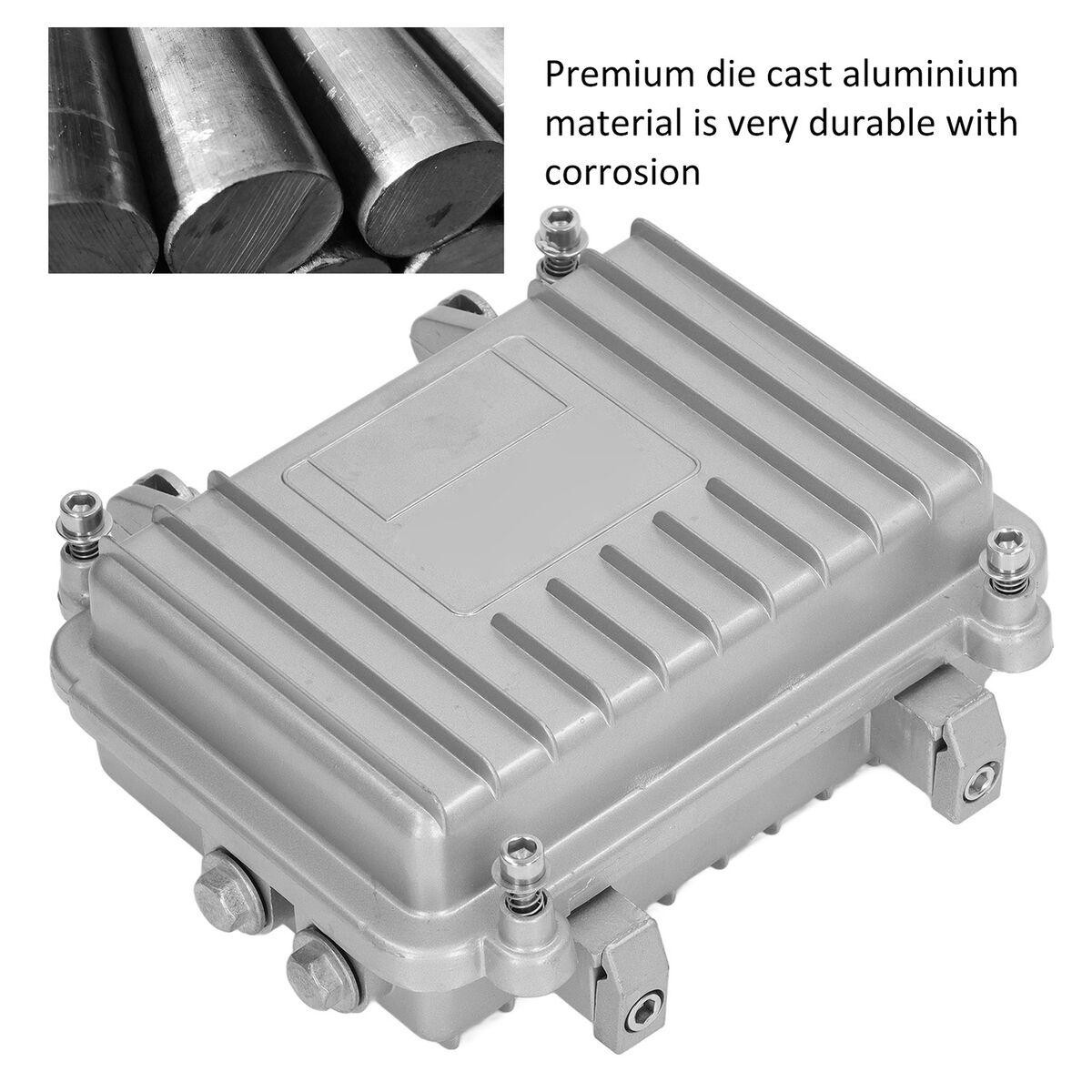What is Die Casting?

Die Casting is a casting process that injects molten metal into a metal mold (also called a mold cavity) under high pressure. Die casting is suitable for the production of large quantities of precision castings, especially metal parts such as aluminum alloys, zinc alloys, magnesium alloys, etc. with complex shapes and high precision requirements. Aluminum die casting is widely used in manufacturing due to its good mechanical properties, thermal conductivity and corrosion resistance.
Die casting is generally divided into two types: cold chamber die casting and hot chamber die casting. Cold chamber die casting is suitable for high melting point metals such as aluminum and copper, while hot chamber die casting is suitable for metals with lower melting points, such as zinc alloys.
MINGNON is a manufacturer specializing in aluminum casting and die casting, providing high-quality aluminum alloy die casting parts. Die casting is a precision casting technology that is widely used in many industries, especially in the production of parts requiring high precision and complex shapes.


Characteristics of die casting
High precision and complex shapes:
Die casting can produce parts with extremely high precision and complex shapes. Due to the use of metal molds and high-pressure injection, the dimensional accuracy and surface quality of the castings are very good, reducing the need for subsequent processing.
High production efficiency:
Compared with other casting methods, die casting has a very fast production speed and is suitable for large-scale batch production. The short cycle time of each die casting process can significantly improve production efficiency.
Good surface finish:
Due to the high smoothness of the mold surface, die castings usually have a good surface finish and less post-processing requirements.
Excellent mechanical properties:
Die castings usually have good tensile strength, corrosion resistance and thermal stability, and are suitable for applications requiring high strength.
Material saving:
Due to the high-pressure injection method, the molten metal can completely fill the gaps in the mold, reducing metal waste.
Suitable for mass production:
Die casting is a very suitable process for mass production, especially for occasions where a large number of parts need to be produced and high dimensional accuracy is required.
Commonly used materials for die casting
Die casting can use a variety of alloy materials, among which aluminum alloy is the most common. The following are several common die casting materials:
Aluminum Alloys:
Aluminum alloy die casting is one of the most common types of die casting. Aluminum alloys are lightweight, corrosion-resistant, and high-strength, and are particularly suitable for the production of parts in the automotive, electronics, aviation and other industries. Commonly used aluminum alloys include ADC12, A380, A360, etc.
Zinc Alloys:
Zinc alloys have good fluidity and low melting points, and are suitable for precision die casting. Zinc alloy castings have a high surface finish and are suitable for products that require high appearance requirements, such as automotive trim, electrical housings, etc.
Magnesium Alloys:
Magnesium alloys have lightweight, good strength-to-weight ratio, and high corrosion resistance, and are suitable for applications in aerospace and automotive fields that require lightweight.
Copper Alloys:
Copper alloy die castings have high corrosion resistance and good conductivity, and are often used in the manufacture of electronic products, such as connectors, switches, etc.
Copper-Aluminum Alloys:
This alloy is suitable for die casting in high temperature environments and is commonly found in automotive engine parts and other applications in high temperature working environments.


Application fields of die casting
Automotive industry:
In the automotive industry, aluminum alloy die casting is widely used in body parts, engine parts, radiators, seat frames, etc. The light weight and high strength characteristics of aluminum alloy make it an important material in automobile manufacturing.
Electronic industry:
In the electronics industry, die-cast aluminum alloys are often used to manufacture mobile phone cases, TV cases, computer cases and other products. The excellent heat dissipation of aluminum alloys makes it an ideal choice for electronic equipment casings.
Home appliance industry:
Die-cast parts are widely used in home appliances, such as internal structural parts of air conditioners, refrigerators, washing machines and other equipment. Aluminum alloys have good thermal conductivity and corrosion resistance, which are suitable for these demanding application scenarios.
Aerospace:
Die-casting technology is also used in the aerospace field, especially aluminum alloy and magnesium alloy materials, which have the characteristics of light weight, high strength and corrosion resistance, and are suitable for high-performance parts such as aircraft structural parts and engine parts.
Electrical industry:
Due to the precision and good conductivity of die-cast parts, die-cast aluminum and zinc alloys are widely used in the production of electrical connectors, electrical junction boxes, electrical casings and other products.
FAQ
Q: What is the precision of die castings?
A: Die castings usually have high precision, and the tolerance range is generally ±0.2mm. The specific precision depends on the materials used, mold design and processing technology.
Q: How does the selection of die casting materials affect product quality?
A: The selection of materials directly affects the strength, corrosion resistance, surface finish and thermal stability of die castings. Selecting the right material according to the actual application requirements of the product is the key to ensuring product quality.
Q: Is die casting suitable for small batch production?
A: Die casting is usually suitable for large batch production. For small batch production, the mold cost of die casting is high, so it is not suitable for small batch production. Other casting processes such as sand casting or low-pressure casting can be considered for small batch production.
Q: How does the die casting process ensure the quality of castings?
A: In order to ensure the quality of die castings, it is necessary to strictly control casting parameters such as injection pressure, temperature, cooling rate, etc., and carry out regular quality inspections, including dimensional inspection, surface finish evaluation, strength testing, etc.
Q: How to reduce the generation of pores during die casting?
Answer: Porosity is a common defect in die casting. Reducing the occurrence of pores can be achieved by optimizing mold design, controlling the injection speed of molten metal, and maintaining a stable casting environment.
Die casting is a high-precision and high-efficiency casting technology that is widely used in many industries, especially in the manufacture of parts that require mass production and high precision. Aluminum alloy die casting is the most common type. Its excellent performance and lightweight characteristics make it widely used in the automotive, electronics, home appliances and other industries. By selecting the right materials and optimizing the process, die casting can produce precise, durable parts that meet various performance requirements.